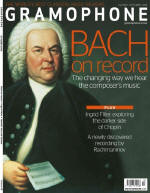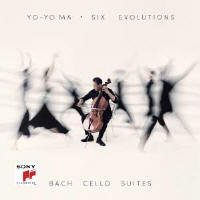Texte paru dans: / Appeared in: |
|
 |
Outil de traduction (Très approximatif) |
|
Reviewer:
Rob Cowan
Regular readers of Gramophone will surely know that there are numerous exceptional recordings of Bach’s six Cello Suites, from Casals and Fournier through to Gendron, Starker, Schiff, Shafran, Isserlis and many, many more, all of them essential listening for all those who love this divine music. But even by those exalted standards this set stands out as rather special. It’s interesting how in 1983 Yo-Yo Ma’s performances of the Suites (his first official recordings of them) were relatively straightforward, even formal. The intervening 35 years have witnessed a significant loosening and lightening in his approach, with a wealth of added tonal variety and a tendency to ease around musical corners without spoiling the line. Rubato is perhaps too strong a word for what he does now, more a detectable element of breathing (in terms of phrasing that is, nothing audible), a limpid ebb and flow, spinning a sense of symbiotic association with each suite, and each movement within a suite. Also he sometimes plays movements attacca so that each work emerges very much of a piece.
Ma’s approach to timing is often as sensitive as his approach to the notes themselves, the gently rhetorical (written) pause from 2'57"-2'59" into the Prelude of the Second Suite (track 7), for example, which adds a noticeable element of suspense to the argument. This touching interpretative gesture is common to all three of his recordings. Ma’s performance of the Allemande from the same suite is quite simply wonderful: so much incident passes within the space of 3'27" that I can only cite Heifetz for comparison, not that the two players sound in the least alike (they don’t), more because both pack so much expressive variety into a mere few phrases. Also the Menuets; again, comparing the two versions of that movement in the Second Suite, this latest offering is so much lighter, more characterful and tautly sprung than its earliest predecessor.
One of the most pertinent points of comparison between Ma’s three versions of the Suites is the Sarabande from the C major Suite (No 3), the second of which, reviewed by Lionel Salter in February 1998, was deemed ‘really sentimental’, which as it happens I disagree with. My personal reaction veers more towards ‘sombre feeling’: the first recording, which is greeted with more in the way of expressive vibrato, is actually more on a par with the Old School whereas Ma’s newest take is swifter and more wistful than either of its predecessors. How beautiful, too, the processional breadth of the Fourth Suite’s Sarabande, the expressive delicacy of the Fifth Suite’s Allemande, the elasticity of its Courante and the affecting numbness of its Sarabande. Also, has the Sixth Suite’s freewheeling Allemande ever sounded more like a spur-of-the-moment improvisation, or its Sarabande cried more openly? It seems to me that the more Ma plays these works – and he plays them a great deal, with numerous ‘recital’ cycles in the offing – the more he brings to them new found levels of spontaneity, the Third Suite’s punchy Gigue, for example, which gradually builds in tension (it’s now boldly argumentative). Speaking metaphorically, for this latest set of the Suites Ma has taken on board a sentiment so poignantly expressed by Blake in a favourite aphorism, namely that ‘no bird soars too high if he soars with his own wings’. By now, Ma’s wings are fully grown. His capacity for soaring seems limitless, his ability to minutely alter dynamics and tempos at the least prompting and the joy of his lilting rhythms are inspirational. I don’t think he has ever made a greater recording and his personal booklet notes help provide a conceptual setting for his playing. |
|




